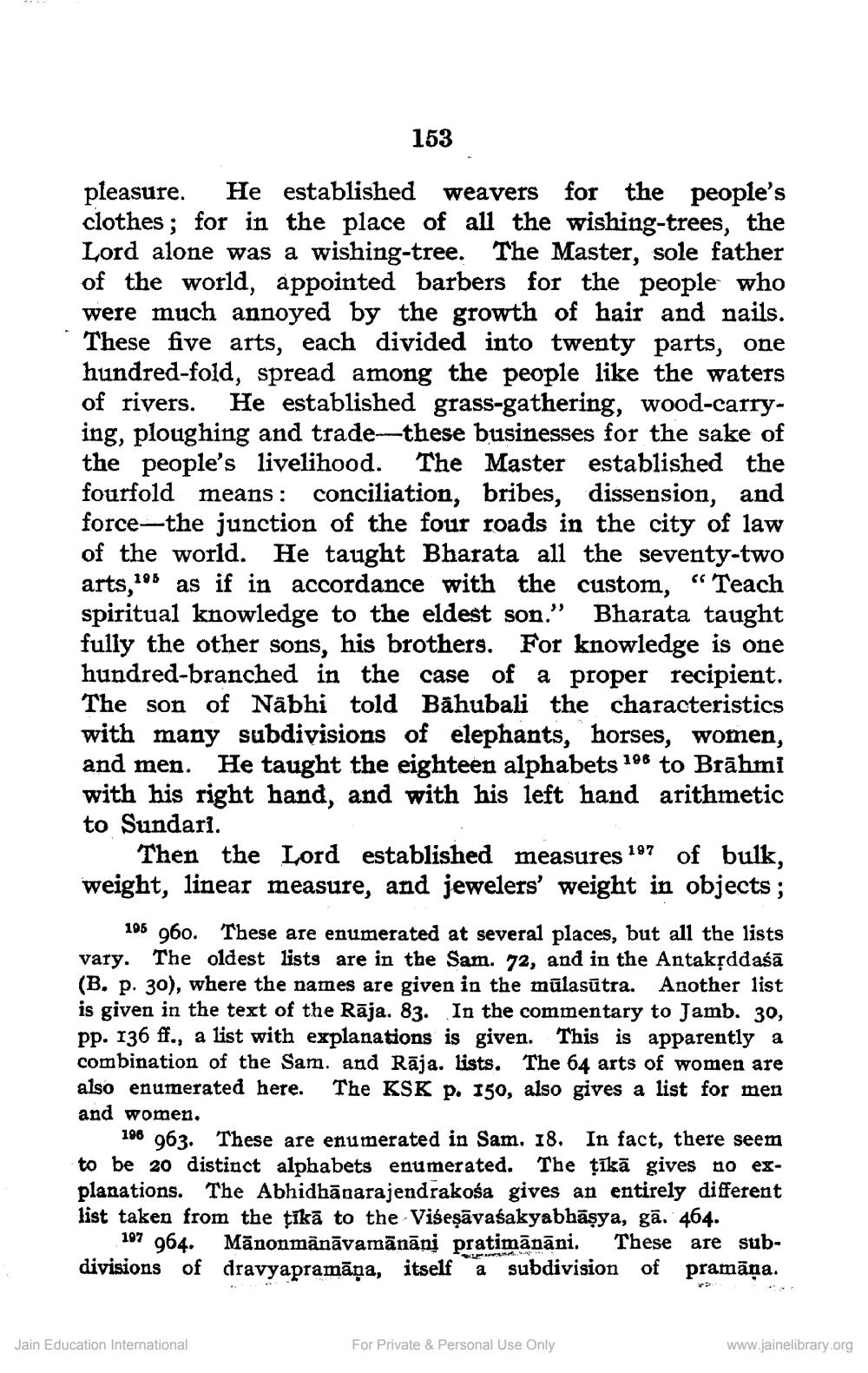________________
153
pleasure. He established weavers for the people's clothes; for in the place of all the wishing-trees, the Lord alone was a wishing-tree. The Master, sole father of the world, appointed barbers for the people who were much annoyed by the growth of hair and nails. These five arts, each divided into twenty parts, one hundred-fold, spread among the people like the waters of rivers. He established grass-gathering, wood-carrying, ploughing and trade these businesses for the sake of the people's livelihood. The Master established the fourfold means: conciliation, bribes, dissension, and force-the junction of the four roads in the city of law of the world. He taught Bharata all the seventy-two arts, 196 as if in accordance with the custom, “ Teach spiritual knowledge to the eldest son." Bharata taught fully the other sons, his brothers. For knowledge is one hundred-branched in the case of a proper recipient. The son of Nābhi told Bahubali the characteristics with many subdivisions of elephants, horses, women, and men. He taught the eighteen alphabets 196 to Brāhmi with his right hand, and with his left hand arithmetic to Sundari.
Then the Lord established measures 197 of bulk, weight, linear measure, and jewelers' weight in objects;
105 960. These are enumerated at several places, but all the lists vary. The oldest lists are in the Sam. 72, and in the Antakțddaśā (B. p. 30), where the names are given in the mūlasūtra. Another list is given in the text of the Rāja. 83. In the commentary to Jamb. 30, pp. 136 ff., a list with explanations is given. This is apparently a combination of the Sam. and Rāja. lists. The 64 arts of women are also enumerated here. The KSK P. 150, also gives a list for men and women.
196 963. These are enumerated in Sam. 18. In fact, there seem to be 20 distinct alphabets enumerated. The tīkā gives no explanations. The Abhidhānarajendrakośa gives an entirely different list taken from the tīkā to the Viseşāvasakyabhāsya, gā. 464.
107 964. Mānonmānāvarānāni pratimānāni. These are subdivisions of dravyapramāņa, itself a subdivision of pramāņa.
Jain Education International
For Private & Personal Use Only
www.jainelibrary.org




